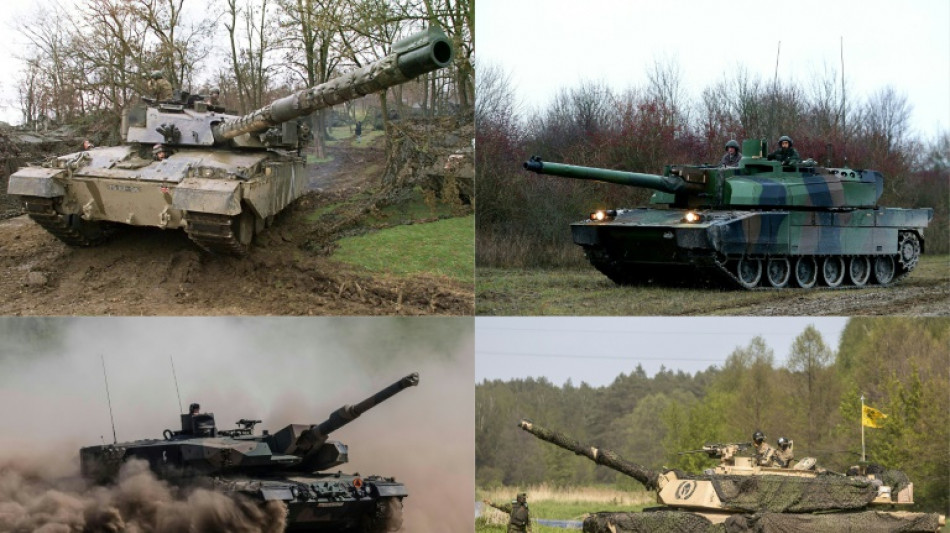
-
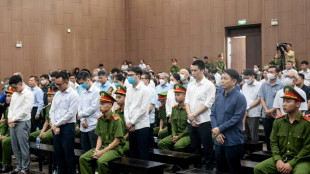 Vietnam puts 41 on trial in $45 mn corruption case
Vietnam puts 41 on trial in $45 mn corruption case
-
World facing 'most complex' situation in decades: WEF
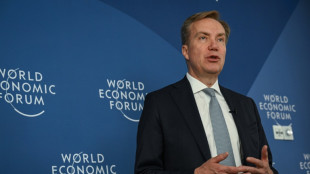
-
 Trial of Sean Combs approaches final stretch
Trial of Sean Combs approaches final stretch
-
Panama says has regained 'control' of restive province after months of protests
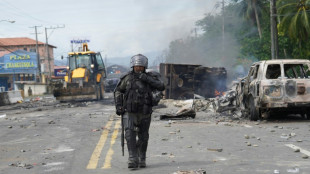
-
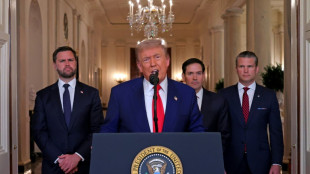 Trump says Iran-Israel ceasefire in force
Trump says Iran-Israel ceasefire in force
-
Pharrell bigs up brown denim as Paris fashion week starts

-
 'Companions' ease pain of China's bustling, bamboozling hospitals
'Companions' ease pain of China's bustling, bamboozling hospitals
-
Japan PM to face tough upper house election on July 20
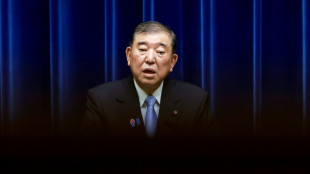
-
 Judge tells Australian mushroom murder jury to put emotion aside
Judge tells Australian mushroom murder jury to put emotion aside
-
Israel says 3 killed in Iran strike after Trump's ceasefire announcement
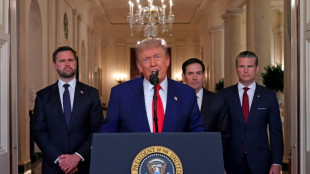
-
 Messi's Miami and PSG progress to set up Club World Cup reunion
Messi's Miami and PSG progress to set up Club World Cup reunion
-
Rock on: how crushed stone could help fight climate change

-
 Porto, Al Ahly out after sharing eight goals in thriller
Porto, Al Ahly out after sharing eight goals in thriller
-
Glamour, gripes as celebs head to Venice for exclusive Bezos wedding

-
 Messi to face PSG after Miami and Palmeiras draw to go through
Messi to face PSG after Miami and Palmeiras draw to go through
-
Schmidt warned he must release Wallabies for Lions warm-ups
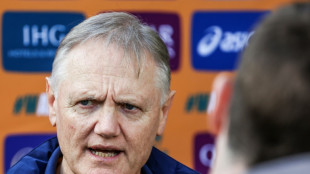
-
 Palmeiras fight back against Inter Miami - both teams through
Palmeiras fight back against Inter Miami - both teams through
-
With missiles overhead, Tel Aviv residents huddle underground
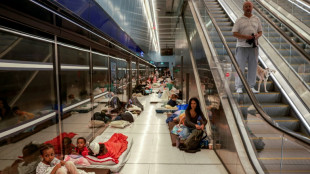
-
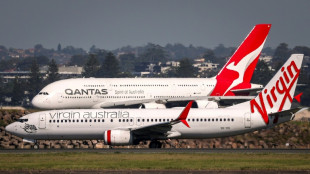 Virgin Australia surges in market comeback
Virgin Australia surges in market comeback
-
Asian stocks up as Trump announces Iran-Israel ceasefire
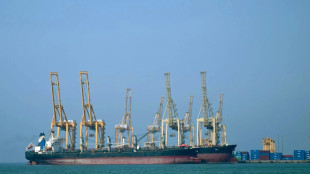
-
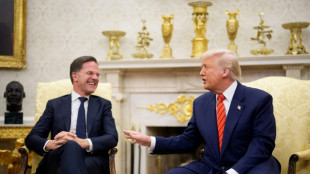 Flatterer-in-chief: How NATO's Rutte worked to win over Trump
Flatterer-in-chief: How NATO's Rutte worked to win over Trump
-
Iran signals halt to strikes if Israel stops
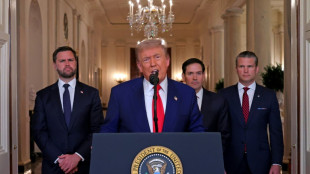
-
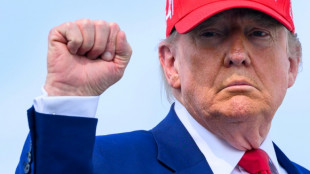 NATO summit seeks to keep Trump happy -- and alliance united
NATO summit seeks to keep Trump happy -- and alliance united
-
Russian drone attacks kill three in northeast Ukraine
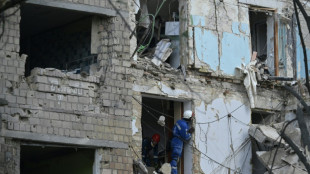
-
 Better than gold: how Ecuador cashed in on surging cocoa prices
Better than gold: how Ecuador cashed in on surging cocoa prices
-
Millions in US sweat out first extreme heat wave of year

-
 Pro-Palestinian protest leader details 104 days spent in US custody
Pro-Palestinian protest leader details 104 days spent in US custody
-
Gender not main factor in attacks on Egyptian woman pharaoh: study

-
 'Throwing the book away' with no preparation for next season: Bayern's Kompany
'Throwing the book away' with no preparation for next season: Bayern's Kompany
-
Amazing AI PLC Announces Bitcoin Treasury Policy

-
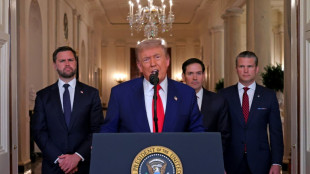 Trump announces ceasefire between Iran and Israel
Trump announces ceasefire between Iran and Israel
-
US Supreme Court allows third country deportations to resume

-
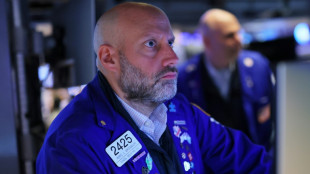 Oil prices tumble as markets shrug off Iranian rebuttal to US
Oil prices tumble as markets shrug off Iranian rebuttal to US
-
Rishabh Pant: India's unorthodox hero with 'method to his madness'
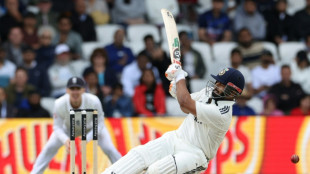
-
 PSG ease past Seattle Sounders and into Club World Cup last 16
PSG ease past Seattle Sounders and into Club World Cup last 16
-
Atletico win in vain as Botafogo advance at Club World Cup

-
 Osaka, Azarenka advance on grass at Bad Homburg
Osaka, Azarenka advance on grass at Bad Homburg
-
Haliburton latest NBA star with severe injury in playoffs

-
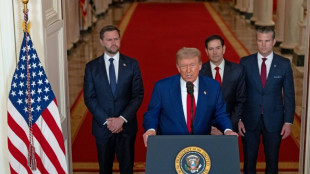 Trump wants quick win in Iran, but goal remains elusive
Trump wants quick win in Iran, but goal remains elusive
-
Iran attacks US base in Qatar, Trump says time to make peace
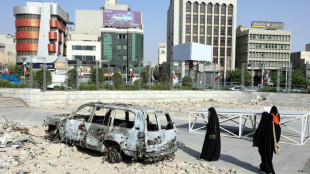
-
 Kasatkina falls, Fonseca secures first win on grass at Eastbourne
Kasatkina falls, Fonseca secures first win on grass at Eastbourne
-
Iran attacks US base in Qatar in retaliation for strikes on nuclear sites
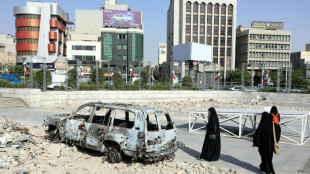
-
 Club World Cup prize money does not mean more pressure: Chelsea boss Maresca
Club World Cup prize money does not mean more pressure: Chelsea boss Maresca
-
Leeds sign Slovenia defender Bijol from Udinese

-
 E.coli can turn plastic into painkillers, chemists discover
E.coli can turn plastic into painkillers, chemists discover
-
Bluff and last-minute orders: Trump's path to Iran decision

-
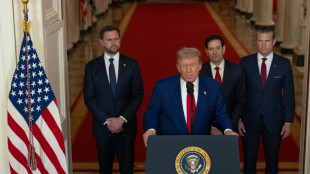 US strikes on Iran open rift in Trump's support base
US strikes on Iran open rift in Trump's support base
-
Indiana's Haliburton has torn right Achilles tendon: reports

-
 England rally after Pant heroics to set up thrilling finish to India opener
England rally after Pant heroics to set up thrilling finish to India opener
-
US hit by first extreme heat wave of the year


Conflicts spur 'unprecedented' rise in military spending
Worldwide military expenditure saw its steepest rise in 2024 since the end of the Cold War, reaching $2.7 trillion as wars and rising tensions drove up spending, researchers said Monday.
Military spending rose worldwide with particularly large increases in Europe and the Middle East, according to a new report by the Stockholm International Peace Research Institute (SIPRI).
Several European countries had seen "unprecedented" rises in their military spending, the report noted.
In real terms, spending rose by 9.4 percent globally compared to 2023, with 2024 marking the 10th year of consecutive spending increases.
"This was really unprecedented," Xiao Liang, a researcher with the SIPRI Military Expenditure and Arms Production Programme, told AFP.
"It was the highest year-on-year increase since the end of the Cold War."
While there may have been steeper increases during the Cold War, data for the Soviet Union is not available, Liang added.
More than 100 countries, including all of the 15 largest spenders, increased their military budgets last year, said the report.
- Profound impact -
"This really speaks to the heightened geopolitical tensions," Liang said. The spending increase was likely to have "a very profound socio-economic and political impact", he added.
"Countries have to make trade-offs in their budgetary decisions," he said.
"For example, we've seen many European countries cutting other spending like international aid to fund the increase in military spending, and... trying to raise taxes or rely on loans or debt to fund the spending," Liang said.
The main contributor to the rise in expenditure was the European region including Russia, where spending rose by 17 percent to $693 billion.
All European countries, except Malta, expanded their budgets, "pushing European military spending beyond the level recorded at the end of the Cold War," SIPRI said.
Russia's military expenditure reached $149 billion in 2024: a 38-percent increase on the previous year and a doubling since 2015.
Ukraine's military spending grew by 2.9 percent to reach $64.7 billion.
While that sum only corresponds to 43 percent of Russia's arms spending, for Ukraine it is the equivalent of 34 percent of its GDP. That means it is carrying the highest military burden of any country.
- Germany rearming -
Germany's spending increased by 28 percent, reaching $88.5 billion, overtaking India as the fourth largest in the world.
"Germany became the biggest spender in Central and Western Europe for the first time since its reunification," Liang noted.
The world's largest spender, the United States, increased expenditure by 5.7 percent, reaching $997 billion. That alone accounts for 37 percent of worldwide spending and 66 percent of the military spending among NATO countries.
Total military spending by the 32 members of the US-led alliance rose to 1.5 trillion as all members increased their spending.
"We've seen in 2024 that 18 out of the 32 NATO countries reached the two-percent GDP spending target, which is the highest since the founding of the alliance," Liang said.
While some of the increases have been a result of European military aid to Ukraine, it has also been fuelled by concerns of potential US disengagement with the alliance.
"There has really been a shift in European defence policies, where we will see large-scale procurement plans into the arms industry in the years to come," Liang explained.
Military budgets also drastically grew in the Middle East to an estimated $243 billion, an increase of 15 percent from 2023.
As Israel continued its offensive in Gaza, its military expenditure surged by 65 percent to $46.5 billion in 2024. SIPRI noted that this represented "the steepest annual increase since the Six-Day War in 1967".
In contrast, Iran's fell by 10 percent to $7.9 billion in 2024, "despite its involvement in regional conflicts and its support for regional proxies", the report added.
"The impact of sanctions on Iran severely limited its capacity to increase spending," said SIPRI.
The world's second-largest spender, China, increased its military budget by 7.0 percent to an estimated $314 billion, "marking three decades of consecutive growth".
China -- which has been investing in modernising its military and expansion of cyberwarfare capabilities and nuclear arsenal -- accounted for half of all military spending in Asia and Oceania.
O.Johnson--AMWN
